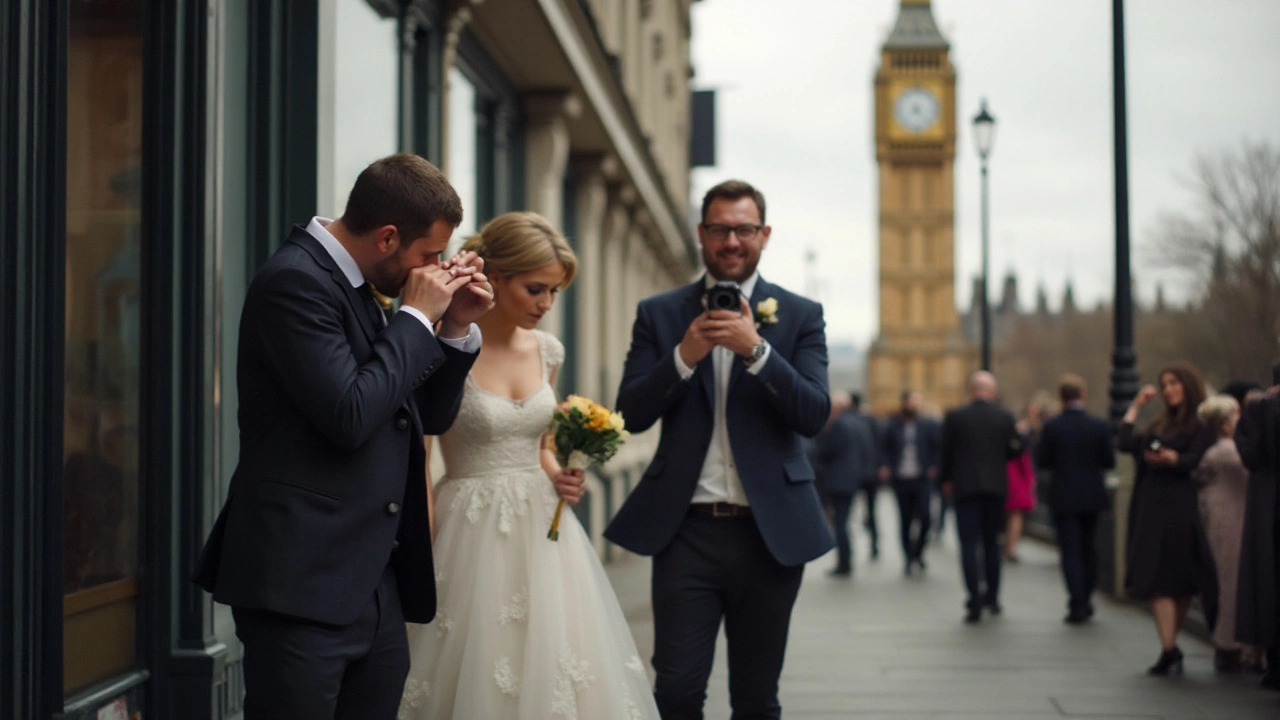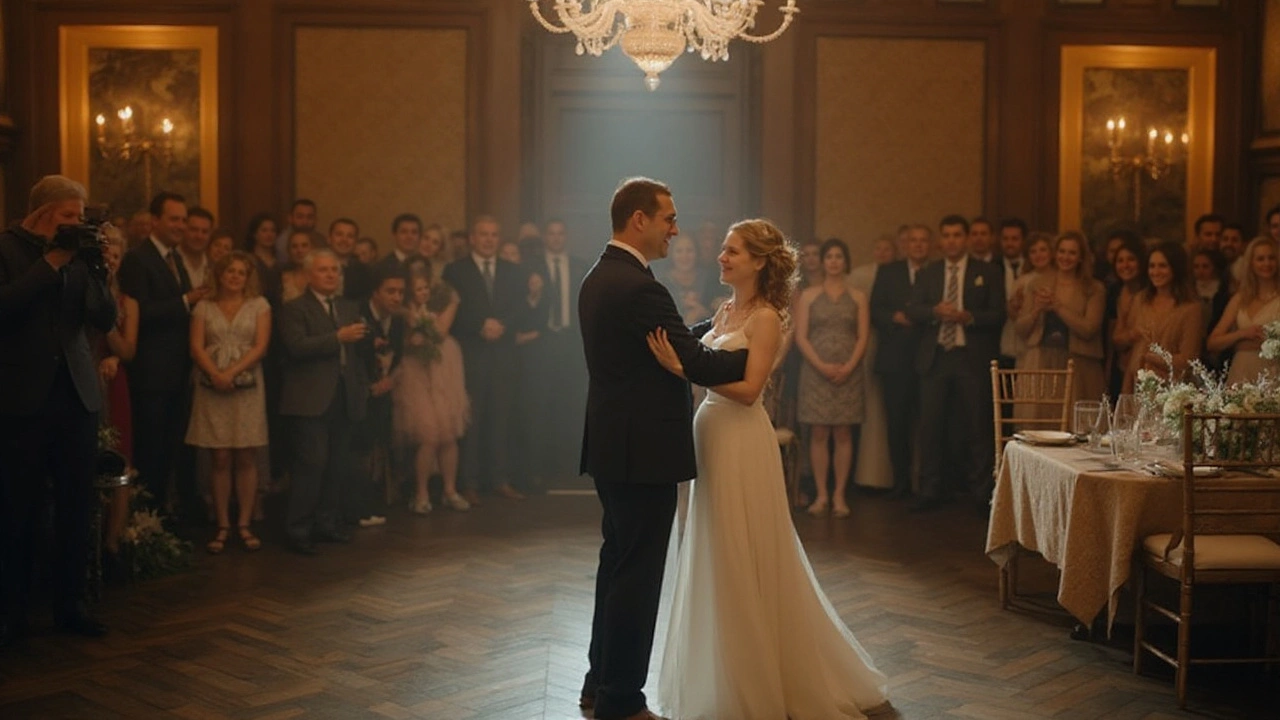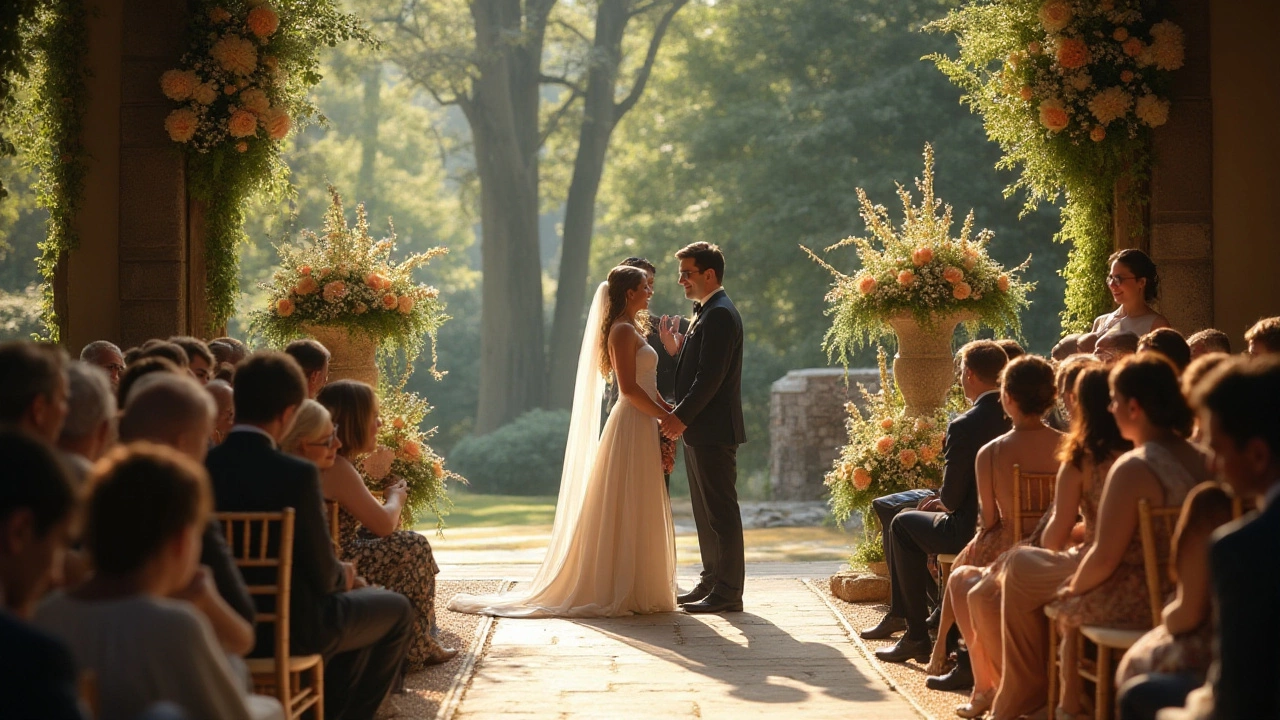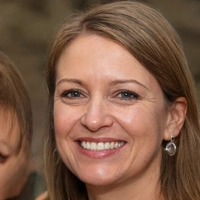When it comes to planning a wedding, the question of how many photographers to hire can be surprisingly complex. The number will often depend on various factors unique to each couple's celebration. These include the size of the guest list, the layout of the venue, and the specific moments each couple wants captured forever.
Some may seek the intimacy offered by a single dedicated photographer, while others may require a more comprehensive team to cover every angle and detail. It’s not just about snapping photos, but about capturing memories vividly and creatively.
By understanding each photographer's role and the dynamics of your event, you can craft a wedding photography experience that is as unique as your love story. Let’s delve into the different aspects that influence this decision and help you find the right balance for your special day.
- Understanding Your Wedding Photography Needs
- Considering the Size and Style of Your Wedding
- Budgeting and Photographer Costs
- Pros and Cons of Hiring Multiple Photographers
- Tips for Coordinating Your Photography Team
Understanding Your Wedding Photography Needs
Every couple envisions their wedding day uniquely, which makes understanding your wedding photography needs a journey in itself. Photography is not just about images; it's about capturing moments that will evoke emotions each time you glance through them. This means that knowing what you want in your album before the big day is crucial. The first step is understanding the scope of your event. Is your wedding an intimate gathering or a large celebration with several hundred guests? Larger weddings typically require additional photographers to ensure that both the primary moments and the subtle behind-the-scenes interactions are captured effectively.
The theme or style of your wedding can also guide your photography needs. Are you envisioning a traditional setup, or is there a more modern and artistic flair to your celebration? Different styles might require photographers who excel in certain genres of wedding photography. A photographer skilled in capturing candid moments might serve you well at a casual wedding, while someone with an eye for dramatic shots might better suit a grand, storybook affair.
The venues, both for the ceremony and reception, also play a critical role in determining your photographical requirements. If your venues boast stunning architectural or natural backdrops, you might want to allocate more resources to photographers capable of incorporating these scenes into your wedding story profoundly. Moreover, a large or split venue—such as a sprawling garden or a multi-floor building—naturally demands more photographers to capture different areas simultaneously.
Considering these factors can help paint a clearer picture of your requirements, but the final decision will also depend on personal preference and desired coverage. A well-regarded photographer, Rita Kools, once said,
"A photograph is the pause button of life, and every wedding needs enough cameras to press that button across the pause-worthy tales happening every second."It helps to discuss these aspects with professionals in the business, who can give tailored advice on the number and type of photographers required, based on your specific wedding details and desired outcomes.
Another aspect to reflect on is the type of moments you want to capture. If you value every guest's expression and want multiple views of each event—from the vows to the dance floor—a team of photographers might be a necessary investment. On the contrary, if your preference leans towards an exclusive focus on you, your partner, and close family members, a solitary photographer with keen attention to detail and preference would suffice.
Considering the Size and Style of Your Wedding
Choosing the right number of wedding photographers is closely tied to the size and style of your wedding. If you're hosting an intimate backyard ceremony, a single photographer might suffice to capture every heartfelt smile and tearful vow. However, larger events, such as a grand hotel ballroom affair with hundreds of guests, may necessitate a team of photographers to adequately document the diverse moments happening simultaneously across the venue.
Each style of wedding presents unique challenges and opportunities for photographers. A rustic barn wedding, for example, benefits from photographers who can work with natural light to capture the enchanting ambiance. On the other hand, urban, late-night receptions may require photographers adept at using artificial lighting to create moody and dynamic images. The style of your wedding dictates not only the necessary skills photographers should possess but also their number to ensure no moment goes unnoticed.
The logistics also play a role. Sprawling venues with distinct areas require more than one photographer to cover different sections simultaneously. Imagine a picturesque countryside estate with a ceremony in an outdoor garden, cocktail hour in an adjacent courtyard, and dinner in a charming indoor space. Here, coordinating several photographers means each part of the venue receives focused attention, enriching the variety and depth of your wedding photo album.
"When planning weddings, I always advise couples to think about 'must-have' shots, and then consider how many spaces and moments they want documented," shares renowned wedding planner JoAn Marc. "A single photographer might not be able to capture both the intimate and grand moments across a large venue all on their own."
Moreover, the type of ceremony—be it religious, civil, or a themed spectacle—adds layers to consider. Traditional ceremonies often have specific rituals and customs that a solo photographer might find challenging to document alone. Thus, having multiple photographers can be beneficial to capture diverse angles and perspectives that a single lens cannot. Understanding the nuances of your chosen celebration type ensures you allocate sufficient resources to forever cherish each custom and tradition.
| Type of Wedding | Recommended Photographers |
|---|---|
| Intimate Ceremony (up to 50 guests) | 1-2 Photographers |
| Medium-Sized Wedding (50-150 guests) | 2-3 Photographers |
| Large Wedding (200+ guests) | 3 or more Photographers |
Additionally, bridal parties also play a role. Larger bridal parties with numerous bridesmaids and groomsmen often require more photography coverage, especially during the preparatory stages—hair, makeup, and pre-ceremony gatherings are moments filled with laughter and sentiment. Having adequate photography resources in these instances ensures that no detail goes unnoticed and the complete narrative of your day is beautifully documented.

Budgeting and Photographer Costs
When planning a wedding, it's essential to understand how to allocate the budget wisely, especially when it comes to wedding photographers. Photographers play a significant role in preserving the memories of your special day, so investing in quality services is critical. The costs can vary widely depending on several factors such as the location, length of coverage, and the photographers' expertise. Typically, wedding photography can range from a few hundred dollars to several thousand, with the national average hovering around $2,000 to $3,500. That said, more luxurious and high-profile weddings might see this number rise significantly, especially if renowned photographers are in demand. Gathering quotes from different providers will give you a sense of where your options stand on the pricing spectrum.
It's worth considering that the best prices aren’t always the best value. Experienced photographers often come with a higher price tag but also bring a wealth of creativity and reliability that might just make the splurge worthwhile. Their expertise not only ensures that every moment is captured beautifully, but they also handle unforeseen hiccups with aplomb. Couples should decide whether they want full-day coverage or certain parts of the wedding immortalized. Some photographers offer packages that might include engagement shoots, bridal portraits, or even album creation, and these all influence costs.
Karen Miller, a celebrated wedding planner once said, "Investing in a seasoned photographer is less about purchasing images and more about securing the artistic storytelling of your day."
Understanding the intricacies of photography packages can help prevent unexpected costs. It's not uncommon for packages to start at a base fee with add-ons that include extra hours, additional photographers, or enhanced post-editing services. These can all accrue additional charges, so it's wise to clarify with your chosen photographer before signing on the dotted line. To keep everything on track, create a detailed spreadsheet listing the photographers you are considering along with their package details, offers, and rates. This organization can provide clarity, helping you compare and contrast without getting lost in the details. There's a practical financial aspect to remember too – in many instances, couples are offered the chance to negotiate. Don't shy away from having open discussions about what fits your budget and what a particular photographer might be willing to offer in terms of concessions or payment plans.
Amidst the planning hustle, couples often wonder where to prioritize their expenditures. A survey conducted by WeddingWire suggests that couples allocate approximately 10-15% of their wedding budget to photography. If a lavish reception or intricate decor is given priority, this might impact the funds available for hiring photographers. Therefore, making a list of 'must-have' shots can help you streamline what's most important, potentially saving some expense by focusing coverage on specific moments rather than an entire event. Ultimately, finding the right photography tips that match your vision without breaking the bank is key, and being upfront about your budget with potential photographers can pave the way for a collaborative partnership that benefits both parties.
Pros and Cons of Hiring Multiple Photographers
When you're considering how to capture your wedding day in all its glory, hiring multiple photographers can offer a range of benefits and some drawbacks too. Let's begin by examining why having more than one photographer might be the perfect choice for your special event. With more lenses focusing on various aspects of the day, you ensure that every detail, large and small, is documented. This is particularly advantageous for large weddings where the space and activities might be too overwhelming for a single pair of eyes and hands. Multiple photographers can cover different angles, capturing everything from grand orchestrated group shots to quiet, intimate moments between family members. The diversity of perspectives can create a more immersive visual story of your festivities.
On the flip side, more photographers could mean some potential overlaps in shots or an increase in the overall noise and bustle, which might disrupt the serene atmosphere some couples value. Additionally, there might be higher costs involved when hiring multiple photographers, as each comes with their fee, adding up to the budgetary considerations for your wedding expenses. However, the investment can be worthwhile for capturing an array of special moments from different viewpoints.
"The key is not in spending time, but in investing it." – Stephen R. Covey
Another consideration is coordination. Ensuring all photographers are on the same page and not stepping on each other's toes requires some pre-planning and communication. It may also require a comprehensive schedule that clarifies areas of responsibility. Some photographers work seamlessly as a team, splitting tasks efficiently to ensure nothing is missed. Others might not be as smooth without proper coordination and direction. Also, usually, one of the photographers should take the lead as a head photographer to streamline the entire process and serve as the primary point of contact between the couple and the photography team.
Whether your wedding will benefit from multiple photographers often depends on your specific needs, vision, and budget. For small, intimate gatherings, the additional photographers might not be necessary. In contrast, large venues with an expansive guest list can truly benefit from the dynamic coverage that a team can provide. As a tip, when hiring, always ask to see entire wedding galleries instead of a highlight reel to truly get a feel for their ability in capturing an event comprehensively. Ultimately, understanding these pros and cons will help you make a decision that aligns with your priorities, ensuring that your wedding day is documented exactly as you envision.

Tips for Coordinating Your Photography Team
Coordinating a team of wedding photographers can seem daunting, especially on a day as bustling as a wedding. However, seamless coordination can lead to a magical tapestry of your day beautifully captured. The first step in achieving this harmony is ensuring each photographer knows their role intimately. A pre-wedding meeting or a video call helps everyone get on the same page. Discuss the timeline, major moments you don't want to miss, and any special details. They should also know each other's strengths and weaknesses, which helps in delegating tasks to ensure efficiency and creativity are maximized. Having a single point person to communicate with the photography team can streamline the process. This could be a wedding planner or a trusted friend who understands your vision.
Effective communication can be complemented by a clear shot list you prepare beforehand. This includes must-have shots, such as the first kiss, the cake cutting, and family portraits. The list acts not only as a guide but also gives photographers an idea of your priorities, ensuring no treasured moment slips by. While you may have your own styles and preferences, allowing photographers creative freedom can yield some of the best candid moments. Be sure to share any special family dynamics or traditional ceremonies in advance. "Great photography tells a story," a renowned photographer once shared.
"The more a photographer knows about that story, the better they can capture it."Allow room for spontaneous shots of guests mingling, children playing, and all those subtle moments that make your wedding day uniquely yours.
Logistics are just as important to consider while coordinating your photography team. Make sure they are familiar with your wedding venue and its lighting conditions. Scheduling a venue walkthrough with your photographers is an excellent idea, as it allows them to visualize their work on the day of the event. This also gives them an opportunity to scout out the best locations for shoots and adjust equipment as needed. Technology-wise, ensure that their equipment can handle the demands of your wedding size and style. Encourage them to pack backup gear, and if you're having an outdoor wedding, don’t overlook what's needed for possible weather changes. It's worth discussing how they'll share duties among themselves, especially during critical moments.
Coordinating multiple photographers also demands a fair level of logistic savvy when it comes to managing files and post-production. Typically, wedding photographers will shoot in RAW format to capture the highest quality images, but this can result in massive files. Establish with them the timeframe for delivering the edited photos, and if there will be different edits for various purposes like albums, prints, and digital sharing. You may want a mix of color and black-and-white images, so let them know early on. Being clear with expectations on timelines and deliverable counts goes a long way in maintaining satisfaction post-wedding. Depending on your agreement, some photographers offer a sneak peek of highlights within a few days, keeping you excited and less anxious while you await the full gallery.
Lastly, appreciation must not be overlooked. Photographer teams work tirelessly to capture the joy and glamour of your day. A simple thank-you gift or a heartfelt note is always appreciated and can strengthen the rapport you have built. If you’re thrilled with the work, be sure to leave a review or recommendation; word of mouth remains one of the strongest pillars in the wedding industry. After all is said and done, remember that your pictures are a lifetime's keepsake - they are worth every ounce of coordination and cooperation for the perfect result.

